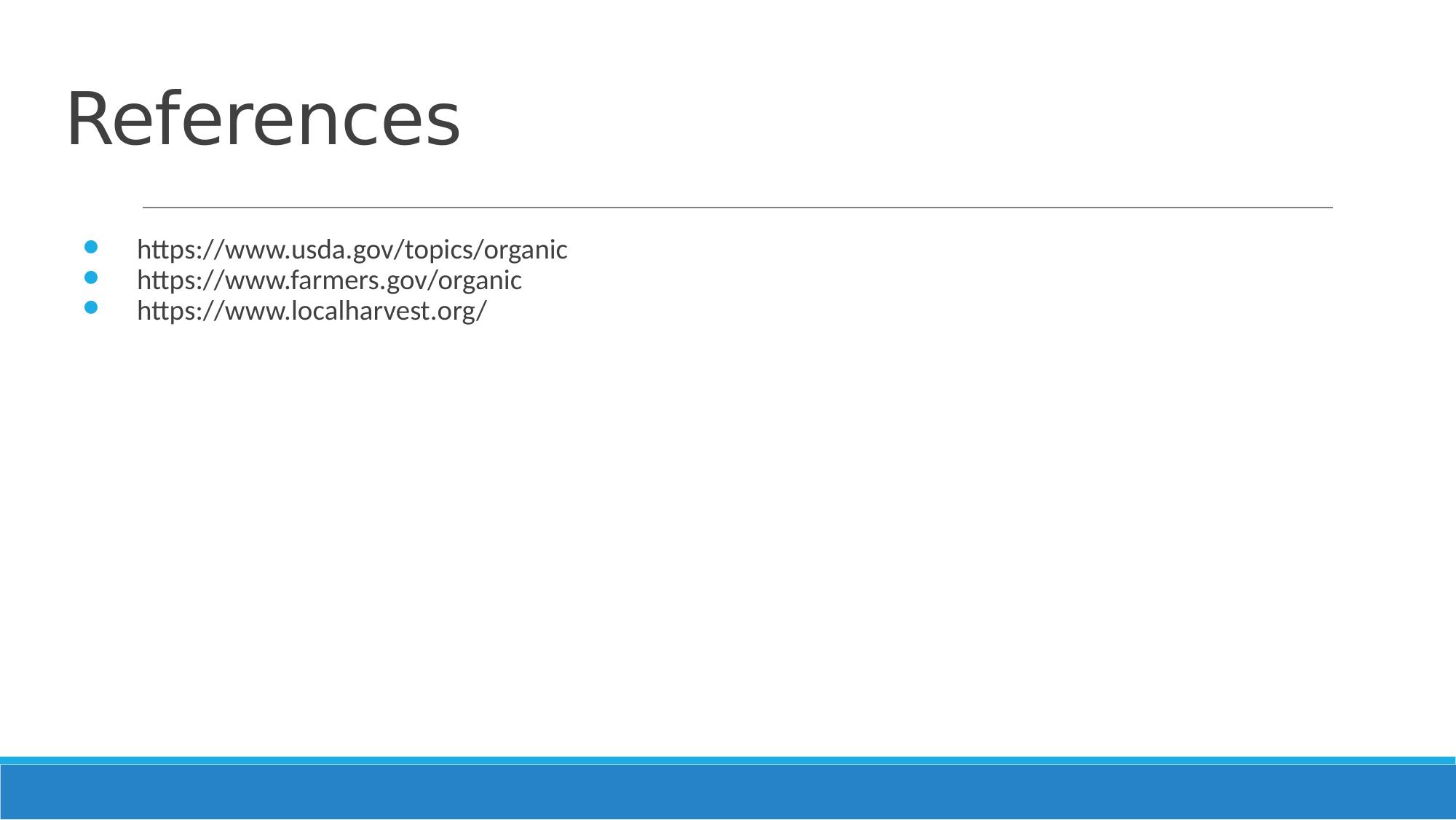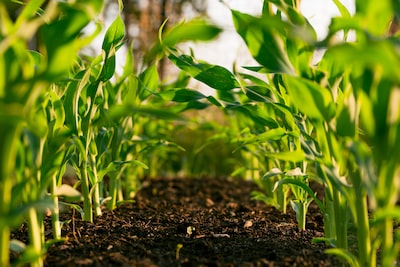Organic Farming SWOT Analysis
Analyzing the strengths, weaknesses, opportunities, and threats of creating an organic farm and selling produce in a nearby mid-sized city.
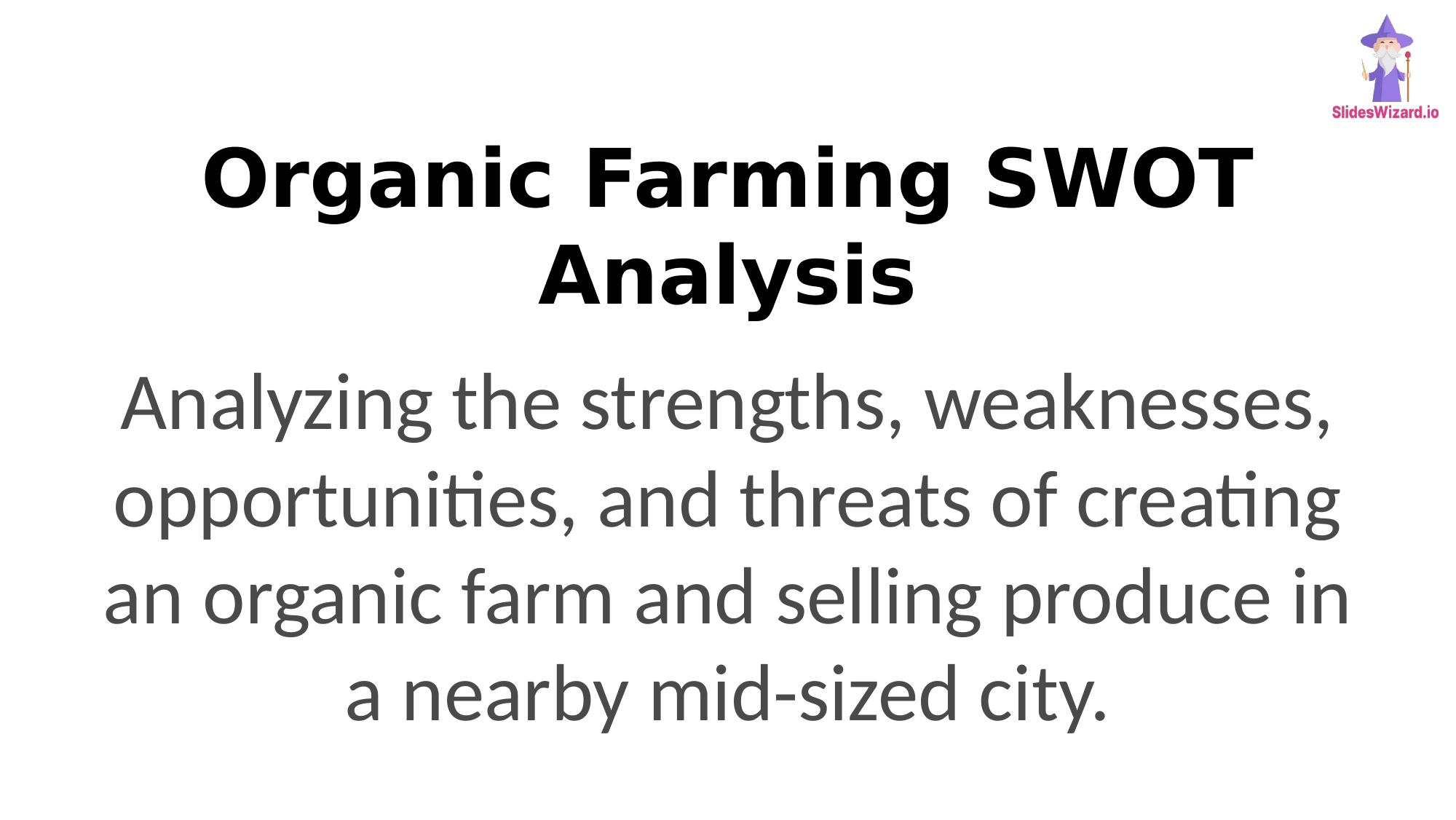
In this presentation, we will delve into a SWOT analysis of starting an organic farm and selling produce in a nearby mid-sized city. We will explore the internal strengths and weaknesses as well as the external opportunities and threats related to this venture.
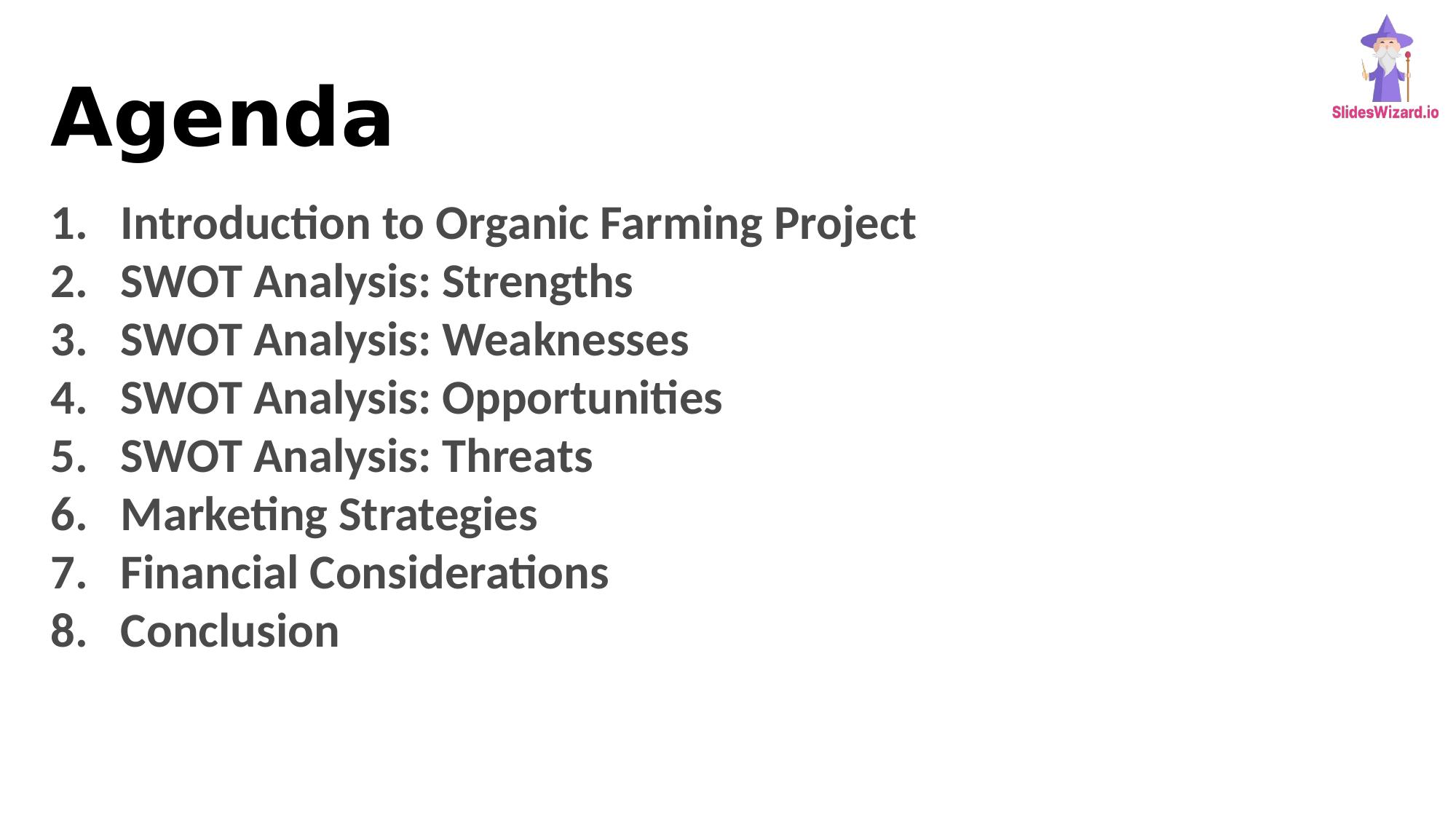

The introduction sets the stage for the SWOT analysis by providing an overview of the organic farming project, identifying the target audience, and highlighting the market analysis findings.
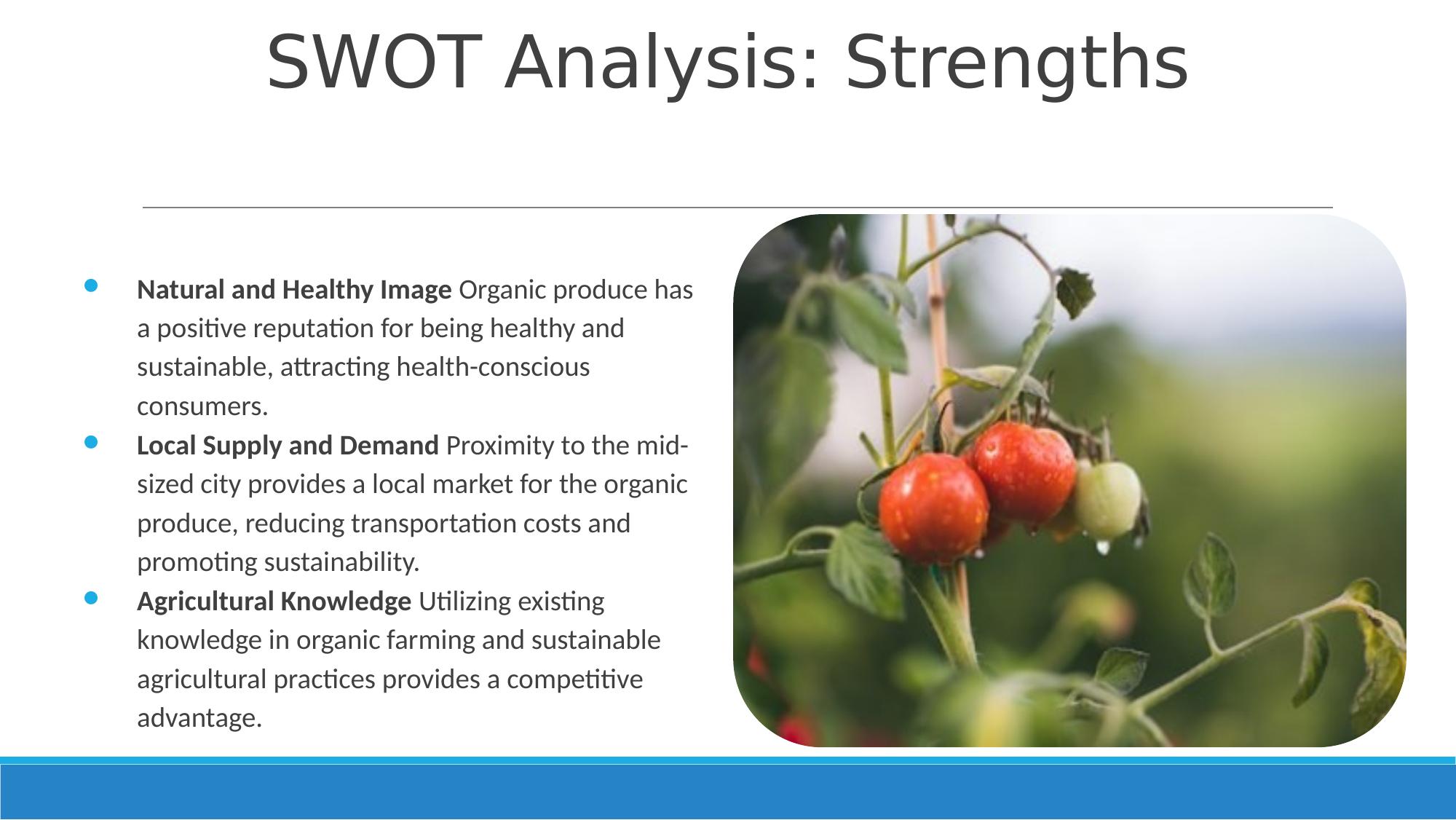
The strengths of the organic farming project include the positive image of organic produce, the local supply and demand dynamics, and the agricultural knowledge that can be leveraged for success.
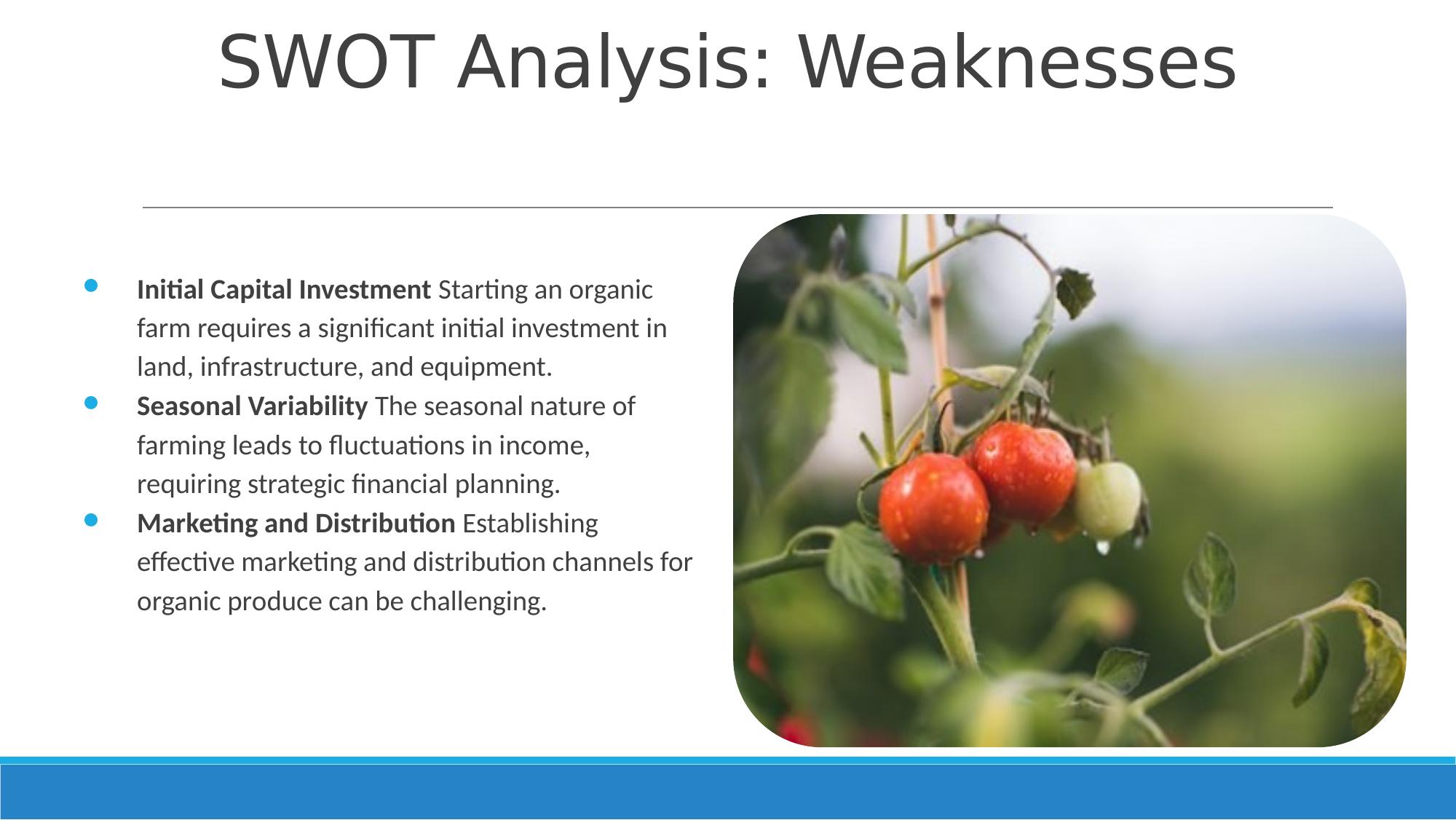
The weaknesses of the organic farming project include the initial capital investment required, the seasonal variability in income, and the challenges related to marketing and distribution.
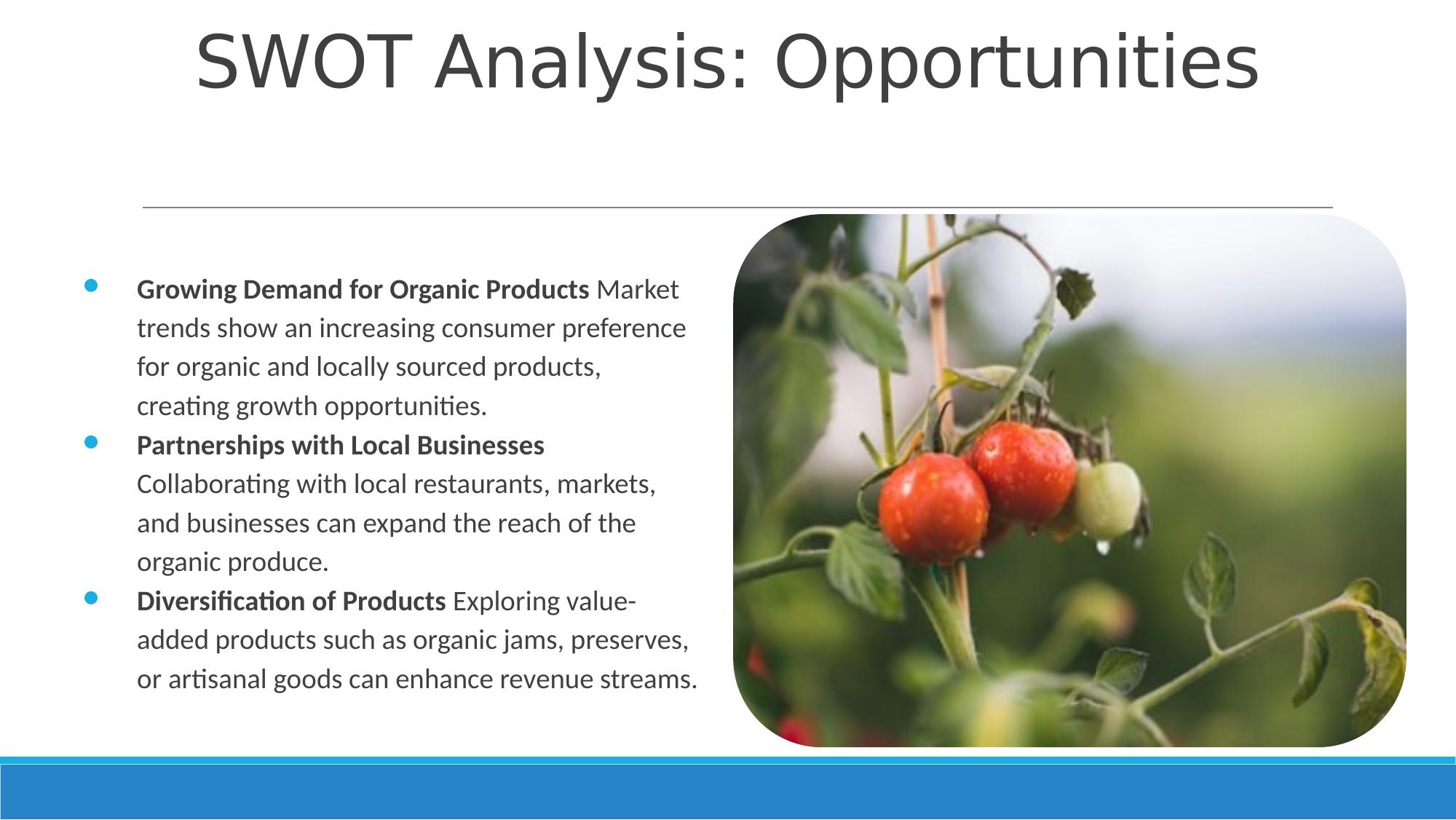
The opportunities for the organic farming project include the growing demand for organic products, partnerships with local businesses, and the potential for diversifying product offerings.
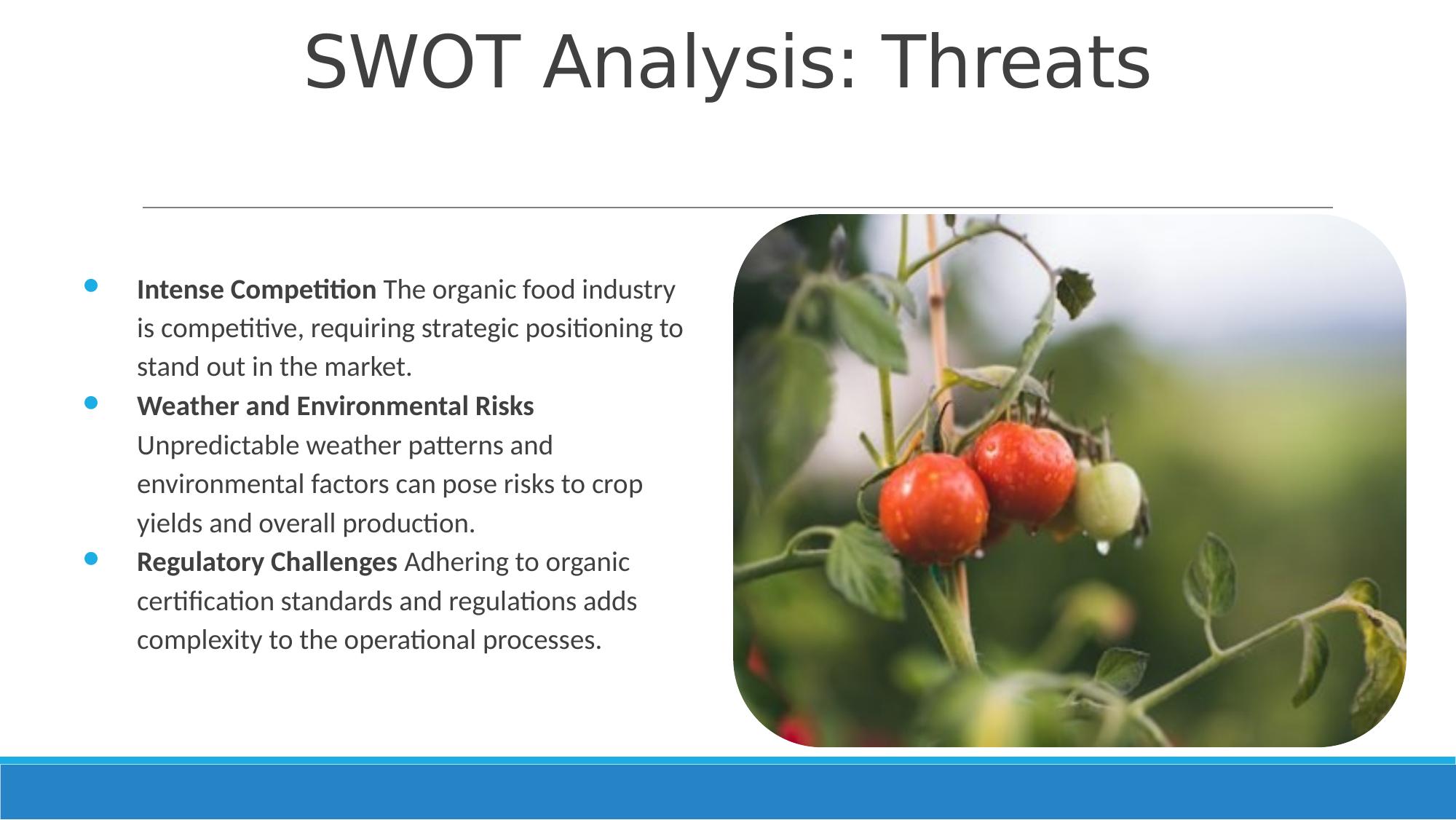
The threats to the organic farming project include intense competition, weather and environmental risks, and the challenges associated with regulatory compliance.
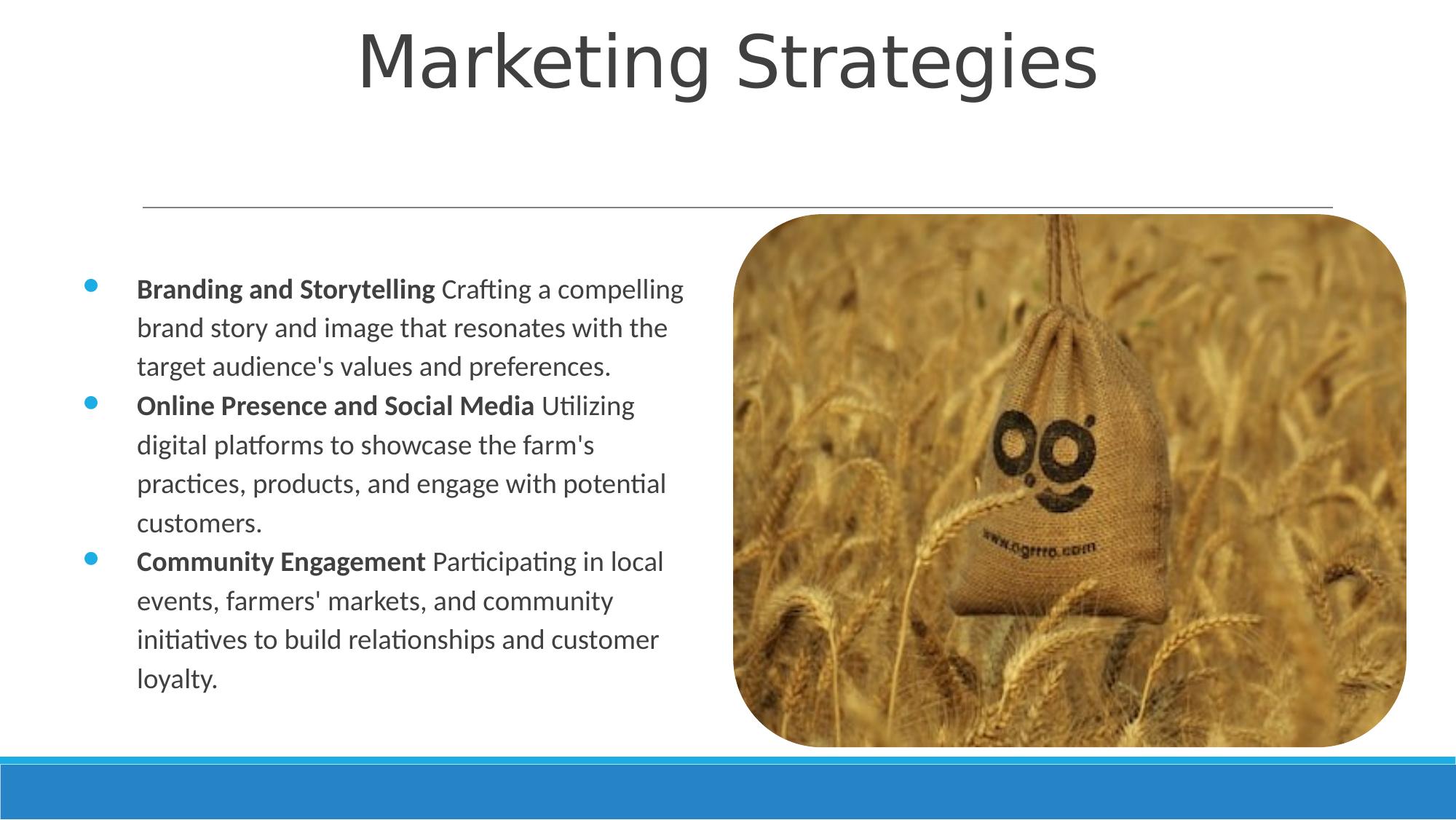
The marketing strategies for the organic farming project include focusing on branding and storytelling, leveraging online presence and social media, and actively engaging with the local community to build a loyal customer base.
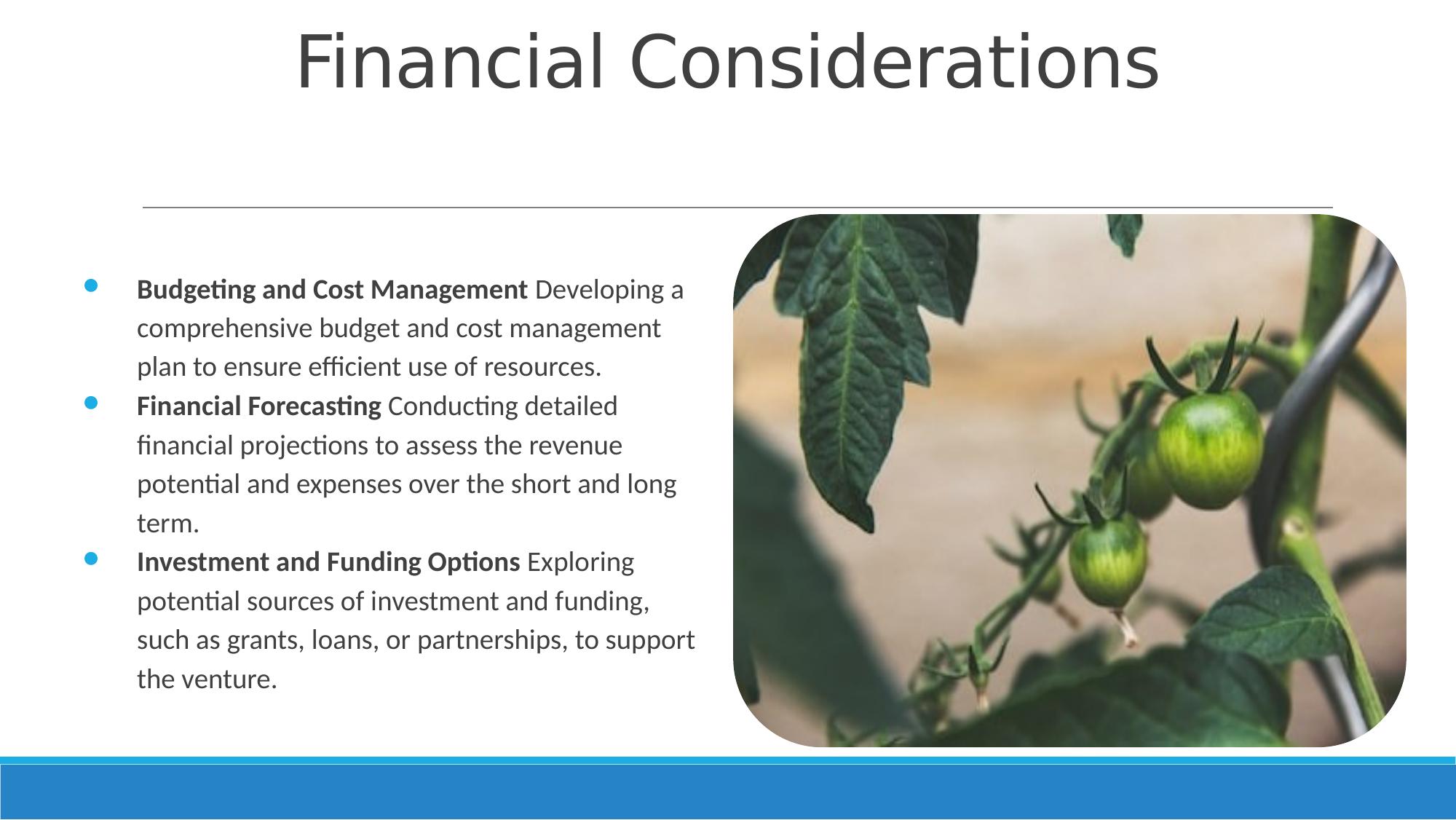
The financial considerations for the organic farming project encompass budgeting, financial forecasting, and exploring various investment and funding options to sustain and grow the business.
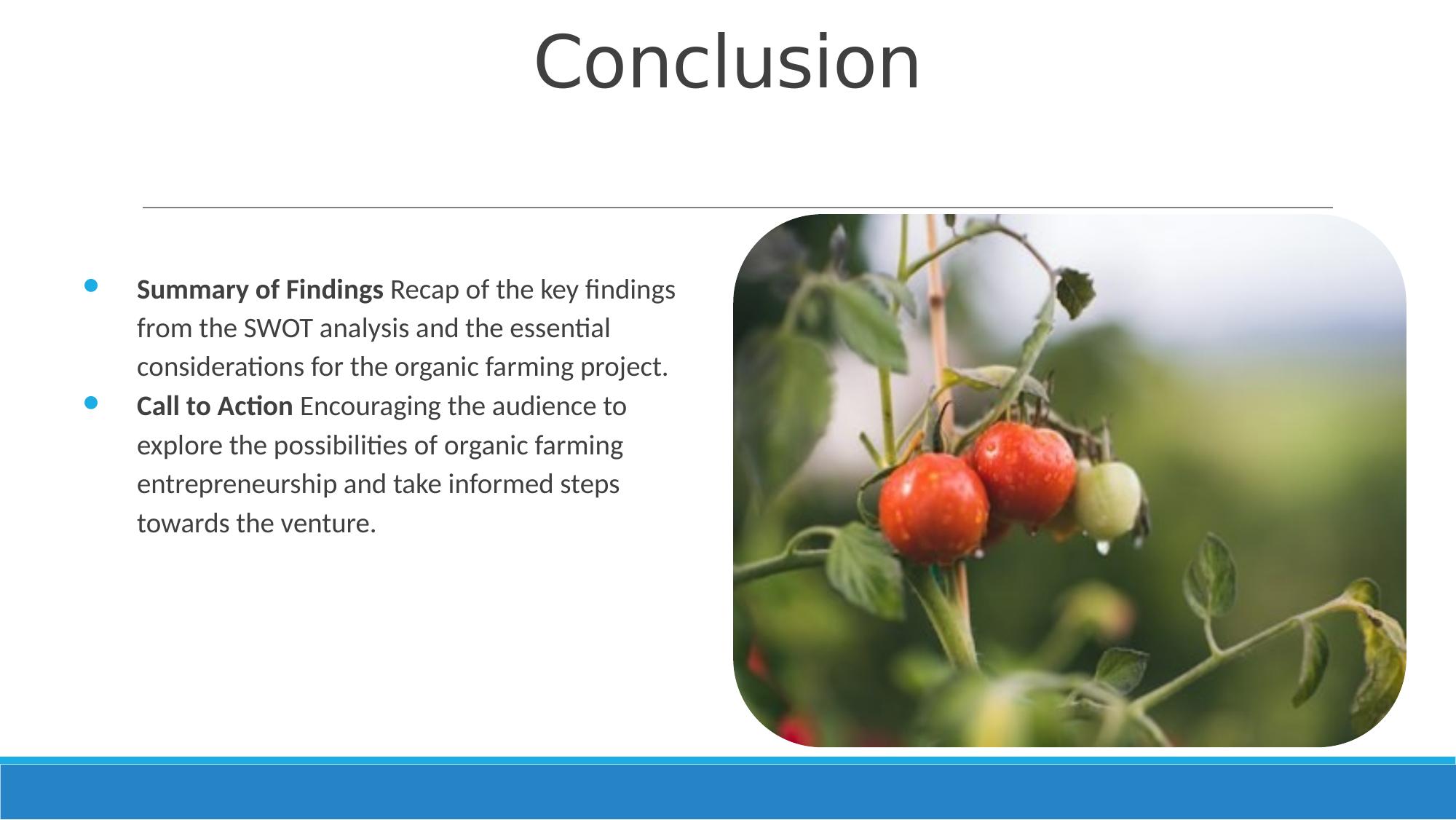
In conclusion, the presentation summarizes the SWOT analysis findings and motivates the audience to consider the potential of organic farming entrepreneurship as a sustainable and rewarding endeavor.
